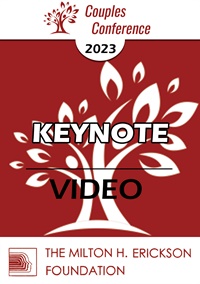
- Average Rating:
- Not yet rated
- Topic Areas:
- Keynotes
- Bundle:
- Couples Conference 2023
- Categories:
- Couples Conference | Couples Conference 2023
- Faculty:
- Ellyn Bader, PhD
- Course Levels:
- Master Degree or Higher in Health-Related Field
- Duration:
- 30:53
- Format:
- Audio and Video
- Original Program Date:
- May 05, 2023
- Short Description:
- Since 1988, professionals worldwide have used and taught the Developmental Model. Feedback from thousands of therapists and clients tells us what matters most to clients and what parts of the Developmental Model have led to the greatest breakthroughs in therapeutic skill. This keynote will emphasize 1) core principles of Developmental thinking that resonate with clients and 2) targeted skill sets that enable therapists to eliminate painful stuck patterns with couples. You’ll come away knowing how to move your couples forward to create enduring change.
- Price:
- $59.00 - Base Price

- Average Rating:
- Not yet rated
- Topic Areas:
- Keynotes
- Bundle:
- Couples Conference 2023
- Categories:
- Couples Conference | Couples Conference 2023
- Faculty:
- Frank Anderson, MD
- Course Levels:
- Master Degree or Higher in Health-Related Field
- Duration:
- 55:23
- Format:
- Audio and Video
- Original Program Date:
- May 05, 2023
- Short Description:
- Internal Family Systems (IFS) is a model of therapy that views the mind as a system of sub-personalities or parts that hold different beliefs, emotions, and behaviors. IFS also believes that each person has a “Self” that has inherent wisdom or healing capacity. When we apply IFS to couples, we help each partner become aware of their own parts and how they interact with their partners parts. This helps couples resolve conflicts that arise when their parts are in opposition to each other. IFS also helps each member of the couple identify and heal the wounds within them that can get in the way of intimacy in the relationship. The overall goal of IFS in couples is to help individuals become more aware of their own parts, to access empathy for their partner’s parts, and release the blocks that cause conflicts to develop a more compassionate relationship within themselves and their relationship.
- Price:
- $59.00 - Base Price

- Average Rating:
- Not yet rated
- Topic Areas:
- Workshops
- Bundle:
- Couples Conference 2022
- Categories:
- Couples Conference | Couples Conference 2022
- Faculty:
- Sejal Patel, PsyD
- Course Levels:
- Master Degree or Higher in Health-Related Field
- Duration:
- 2:00:12
- Format:
- Audio and Video
- Original Program Date:
- Jun 26, 2022
- Short Description:
- For this workshop, we will briefly review research on discussing race related themes and concerns between interracial couples. The presenter will introduce 2-3 interracial couples currently in treatment with this provider and some presenting concerns around sociocultural identity differences, perspectives on social justice, and how the couple discussed or did not discuss microaggressions one partner of the couple experienced outside of the relationship. The presenter will address her own countertransference processes, how she conceptualized the conflicts, and how she addressed and facilitated dialogue between the couple. Participants will also have an opportunity to present their own cases, challenges moments, and questions they have regarding how to address race related presenting issues.
- Price:
- $59.00 - Base Price

- Average Rating:
- Not yet rated
- Topic Areas:
- Workshops
- Bundle:
- Couples Conference 2022
- Categories:
- Couples Conference | Couples Conference 2022
- Faculty:
- Ari Tuckman, PsyD
- Course Levels:
- Master Degree or Higher in Health-Related Field
- Duration:
- 2:00:37
- Format:
- Audio and Video
- Original Program Date:
- Jun 26, 2022
- Short Description:
- Dishonesty can damage relationships and undermine therapy, but honesty is hard, especially for some clients. And yet, for therapy to progress, romantic partners need to be able to navigate thorny discussions with honesty and respect—and couples therapists need to avoid getting roped into being the lie detector. Honesty and disclosure are an important part of effective therapy, but they are also an important goal to work towards. We will begin by discussing the different kinds of dishonesty, the purposes that they serve, and the impact that actual or suspected dishonesty has on the partner and relationship. Then we will discuss how to help clients build the skills to be able to be more honest with themselves, their partner, and their therapist, as well as how to help partners be better receivers of honest disclosure, so that both partners feel empowered to shift a dissatisfying dynamic.
- Price:
- $59.00 - Base Price

- Average Rating:
- Not yet rated
- Topic Areas:
- Workshops
- Bundle:
- Couples Conference 2022
- Categories:
- Couples Conference | Couples Conference 2022
- Faculty:
- Martha Kauppi, MS MFT
- Course Levels:
- Master Degree or Higher in Health-Related Field
- Duration:
- 2:02:19
- Format:
- Audio and Video
- Original Program Date:
- Jun 26, 2022
- Short Description:
- What kills desire in long-term relationships, and how do you help clients with desire discrepancy find one another again? Desire may be mysterious, but relational dynamics that block it--like pressure for sex, managing sex pain, and sexual performance issues--are very predictable. Learn how to identify and work effectively with these tough but common blocks so that desire can bloom again. You’ll gain clinical tools for depathologizing desire differences, starting a collaborative conversation about pleasure, and helping partners build the skills to stay flexible and connected through sexual challenges.
- Price:
- $59.00 - Base Price

- Average Rating:
- Not yet rated
- Topic Areas:
- Topical Panels
- Bundle:
- Couples Conference 2022
- Categories:
- Couples Conference | Couples Conference 2022
- Faculty:
- Joseph Winn, MSW, LICSW, CST-S | Sejal Patel, PsyD | Martha Kauppi, MS MFT
- Course Levels:
- Master Degree or Higher in Health-Related Field
- Duration:
- 1:01:35
- Format:
- Audio and Video
- Original Program Date:
- Jun 26, 2022
- Short Description:
- Extrinsic forces, centered in racism, classism, sexism, heteronormativity, ageism, ableism, and other intersecting identities impact relationships. However, they factors are not extrinsic, as we are all steeped in and operate from or are operated on, but these factors making them all too present and, unfortunately, made invisible to us as clinicians and the relational systems that we work with. The panel will define these factors, explore the power of their invisibility and impacts on relationships at the micro, mezzo and macros levels of experience and discuss their clinical implications on relational and systemic therapies.
- Price:
- $59.00 - Base Price
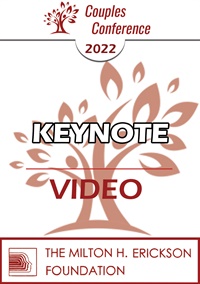
- Average Rating:
- Not yet rated
- Topic Areas:
- Keynotes
- Bundle:
- Couples Conference 2022
- Categories:
- Couples Conference | Couples Conference 2022
- Faculty:
- Martha Kauppi, MS MFT
- Course Levels:
- Master Degree or Higher in Health-Related Field
- Duration:
- 1:01:08
- Format:
- Audio and Video
- Original Program Date:
- Jun 26, 2022
- Short Description:
- When it comes to sex issues, therapists are understandably concerned about crossing a boundary, making their clients uncomfortable, or getting outside of their scope of practice. However, when therapists shy away from bringing up sexuality, they may be missing serious (even life-threatening) issues. In this skill-building presentation, Martha will share her unique approach to bringing up sex, including how to follow up ethically and thoroughly once the topic is open. When should you refer or consult? Where is the line regarding scope of practice? What language will help both you and your clients feel comfortable? How much do you need to know about sex? How do you tell whether you’re dealing with relational issue or a sex issue? What should you focus on first? Discover the answers to these questions and more, and walk away with a set of tools you can apply in your very next session.
- Price:
- $59.00 - Base Price
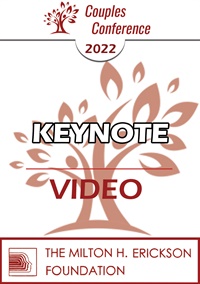
- Average Rating:
- Not yet rated
- Topic Areas:
- Keynotes
- Bundle:
- Couples Conference 2022
- Categories:
- Couples Conference | Couples Conference 2022
- Faculty:
- Joseph Winn, MSW, LICSW, CST-S
- Course Levels:
- Master Degree or Higher in Health-Related Field
- Duration:
- 1:00:04
- Format:
- Audio and Video
- Original Program Date:
- Jun 26, 2022
- Short Description:
- The process of working with erotic transference and countertransference is often avoided in clinical practice and in the training of psychotherapists. As therapists we must recognize and address that erotic transference and countertransference are significant pathways, albeit uncomfortable topics steeped in fear and defensiveness, toward greater vulnerability, healing, and the potential for growth within the clients we treat and the clinicians we long to be. This keynote discussion will begin a conversation on the process of removing fear from topics traditionally avoided within the realm of normative psychotherapy practice and parameters for their exploration within a boundaried and ethical framework will be provided.
- Price:
- $59.00 - Base Price
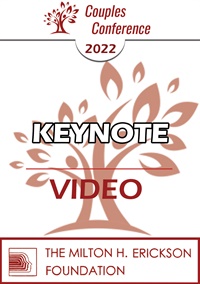
- Average Rating:
- Not yet rated
- Topic Areas:
- Keynotes
- Bundle:
- Couples Conference 2022
- Categories:
- Couples Conference | Couples Conference 2020
- Faculty:
- Stan Tatkin, PsyD, MFT
- Course Levels:
- Master Degree or Higher in Health-Related Field
- Duration:
- 1:02:37
- Format:
- Audio and Video
- Original Program Date:
- Jun 25, 2022
- Short Description:
- The empty chair psychodrama was first made popular by Fritz Perls, founder of Gestalt therapy. It has since been adapted into Redecision Therapy, The Developmental Model, Voice Dialogue, Family Constellation, and even Cognitive-Behavioral therapy. PACT has adapted this approach for use within the couple session when consistent projection or projective identification processes impede the forward development of one or both partners. This particular technique uses Self and Object Relations theory to capture real time archaic self and object representations that maintain an ego syntonic, regressed relationship with one (or more) original caregiver(s). The psychodrama provides an opportunity for the couple therapist to bring this maladaptive early relationship to light and to make strides toward ego dystonic rejection of the regressive behavior.
- Price:
- $59.00 - Base Price
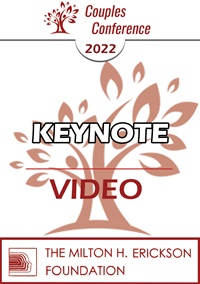
- Average Rating:
- Not yet rated
- Topic Areas:
- Keynotes
- Bundle:
- Couples Conference 2022
- Categories:
- Couples Conference | Couples Conference 2022
- Faculty:
- Elliott Connie, MA, LPC
- Course Levels:
- Master Degree or Higher in Health-Related Field
- Duration:
- 1:00:54
- Format:
- Audio and Video
- Original Program Date:
- Jun 25, 2022
- Short Description:
- The Solution Focused Approach has been around since the 1970s and in that time it has grown in prominence and popularity amongst professionals in many fields. One area where it has been gaining steam in recent years has been in working with couples. This is an approach about using questions to help the couple move their relationship from the problem towards a future that is more desirable to both partners.
- Price:
- $59.00 - Base Price
Please wait ...

